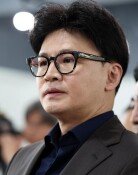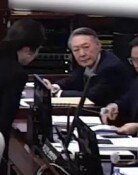[Editorial] One-stop Service Campaign for a Hopeful Future
[Editorial] One-stop Service Campaign for a Hopeful Future
Posted February. 24, 2009 04:47,
The Dong-A Ilbo has launched the campaign Finding Hope Together Getting Rid of Household Debt with the Health, Welfare and Family Affairs Ministry and Hana Financial Group. After the campaign was announced, a free debt clinic run by Podo Financial Planning and the ministry received 20 times more calls than usual. The great response demonstrates the number of people seeking help to stand on their own two feet by getting rid of heavy debt from the sudden loss of jobs, lackluster business and bankruptcy triggered by the economic crisis.
If they become credit delinquents and join the poor, it will only amplify social anxiety. Unconditional support, however, could bring about moral hazard. The essence of the Dong-A campaign lies in that it prioritizes a reality check of applicants by discussing their financial status with Podo experts. Unlike unconditional welfare, which directly provides living expenses to the socially marginalized, the daily seeks to help them stand on their own.
People with heavy debt are trapped in a vicious cycle of using a loan from one organization to meet interest obligations from another at high cost due to lack of financial knowledge. Once they find more affordable ways of repaying debts with the help of the clinic, they can hope to eventually get rid of their debts and rise again. Those with a strong determination will be recommended as candidates for the microcredit program run by the Hana Hope Foundation. If they start a new business through the program, the campaign will go as far as providing an extensive network of advisers in the respective fields. Startups funded by microcredit show a survival rate of 88.2 percent, four times higher than that of small businesses.
Microcredit is a financial innovation that grants a small sum of startup money without collateral to the socially marginalized whose lack of collateral prevents them from receiving traditional loans. Worldwide, about 3,300 institutions in 110 countries use microcredit. Bangladeshi economist Muhammad Yunus won the Nobel Peace Prize in 2006 for establishing Grameen Bank in his home country in 1983. The bank has helped seven million Bangladeshis escape poverty through microcredit.
The dailys campaign is a one-stop service for hope, beginning with financial planning to relieve household debts to a microcredit program for setting up a small business, which is subsequently followed by counseling in tax and accounting. The ministry announced that it will promote microcredit together with debt clinic service from next month. Financial authorities will also expand microcredit financing. An enthusiastic response for the campaign as a new social welfare model giving people hope is desirable.



![[단독]김경 “1억원 줄때, 강선우도 함께 있었다” 자수서](https://dimg.donga.com/c/138/175/90/1/wps/NEWS/IMAGE/2026/01/14/133148772.5.jpg)


![반찬통 착색 고민 끝…‘두부용기’ 버리지 말고 이렇게 쓰세요 [알쓸톡]](https://dimg.donga.com/c/138/175/90/1/wps/NEWS/IMAGE/2026/01/09/133126593.3.png)
